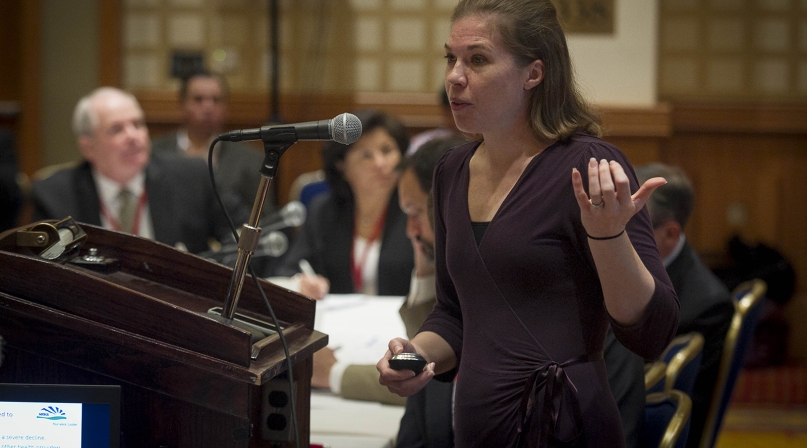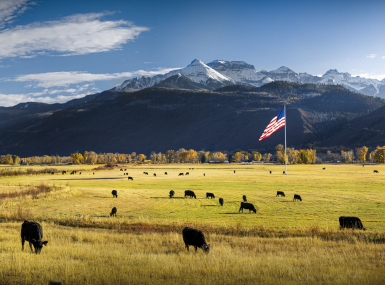Health care dominates Rural Action Caucus meeting
Author
Upcoming Events
Related News

62 million Americans rely on rural health providers; since 2010, 80 rural hospitals have closed
The diagnosis is not good for health care in rural America and the prognosis is not much better, either, if you take to heart data provided by Diane Calmus from the National Rural Health Association at the conference’s Rural Action Caucus meeting. She was one presenter in a lineup of speaker-experts addressing challenges faced by the country’s rural counties.
The challenges health care poses for rural communities are significant. Sixty-two million patients rely on rural providers, and that population is older, sicker and poorer than their urban counterparts, Calmus said. A new Centers for Disease Control study shows a widening death gap between the rural and urban parts of the U.S.
Some part of that gap can be blamed on what Calmus characterized as “deaths of despair,” fatalities linked to the opioid crisis.
There’s another worrisome gap — access. Since 2010, 80 hospitals have closed in rural America. Some closings are due to population change, but many, she said, can be blamed on the way hospitals are being paid under the Affordable Care Act. Rural hospitals rely more heavily on Medicare and Medicaid payments.
When those funding sources receive across-the-board cuts, such as happened with Medicare reimbursements under ACA, the impact falls more heavily on rural health care systems. Profit margins for rural hospitals declined 6 percent under the ACA, while they increased 7 percent in urban areas.
Even more disturbing, 673 rural hospitals — a third of the total — risk a similar fate, she said. “They are in the same or worse shape than the 80 that closed.”
Another facet of the access dilemma involves recruiting and retaining enough doctors and other health care workers in rural areas whose economies are recovering at a much slower pace than the rest of the country. “The ACA has not improved access to health care in rural America,” she said.
But all is not gloomy.
Because of November’s election and the role rural areas played in electing the current administration, there is renewed interest on Capitol Hill about rural health care. “Interest on the Hill is really high about rural health care,” she said.
Which brings everyone’s attention to the elephant in the room, the fate of the Affordable Care Act in the Trump administration. “There are a lot of unknowns,” she said, but offered three things to remember: It’s tough to repeal a benefit; it would be expensive, and President Trump has expressed support for some provisions of the act.
Attachments
Related News

USDA streamlines foreign-owned agricultural lands transaction reporting with online portal
On January 22, the U.S. Department of Agriculture (USDA) launched a new online portal to streamline reporting transactions involving U.S. agricultural land by foreign entities.

CMS announces Rural Health Transformation Program funding
On December 29, the Centers for Medicare & Medicaid Services (CMS) announced $50 billion in awards over 5 years to all 50 states under the Rural Health Transformation Program.

Senators introduce bipartisan UPGRADE Act to support small and rural public water systems
On December 15, Sens. Lisa Blunt Rochester (D-Del.) and Roger Wicker (R-Miss.) introduced the Unincorporated Partnerships for Grant Resources, Assistance, and Drinking Water Enhancements (UPGRADE) Act (S. 3465), a bipartisan bill that would strengthen federal support for small public water systems and helps unincorporated communities access clean and affordable water.
